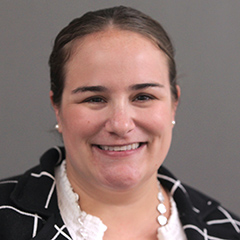Project Overview
To asses states’ use of Medicaid authorities to provide self-directed home- and community-based services (HCBS) programs to identify potential policy strategies for future consideration.
The national shortage of direct care workers who provide HCBS to Medicaid beneficiaries is a longstanding issue. Building on previous MACPAC work on Medicaid payment policies to support the HCBS workforce, MACPAC aims to develop a foundational understanding of the self-directed HCBS landscape to inform future work.
Medicaid and CHIP Payment and Access Commission
The purpose of the study is to understand the range of state approaches to designing and administering self-directed HCBS. Three research questions guide the work:
- What is the statutory and regulatory framework that guides self-direction?
- How do states design and administer self-directed programs for HCBS?
- What barriers to effective program administration exist for self-directed HCBS?
To explore these questions, we are interviewing several individuals and organizations with expertise in self-directed HCBS such as federal officials, national associations, advocacy organizations and research institutions. We are also inviting a select group of stakeholders – including state agencies and other third-party entities that participate in self-direction models – to discuss the design and administration of these models. These include information and support professionals, support brokers, case management entities, financial management services (or FMS) agencies, and managed care organizations. MACPAC will include the findings from this work in presentations to the Commission and potential future publications.
Related Staff
Efficiency Meets Impact.
That's Progress Together.
To solve their most pressing challenges, organizations turn to Mathematica for deeply integrated expertise. We bring together subject matter and policy experts, data scientists, methodologists, and technologists who work across topics and sectors to help our partners design, improve, and scale evidence-based solutions.
Work With Us


